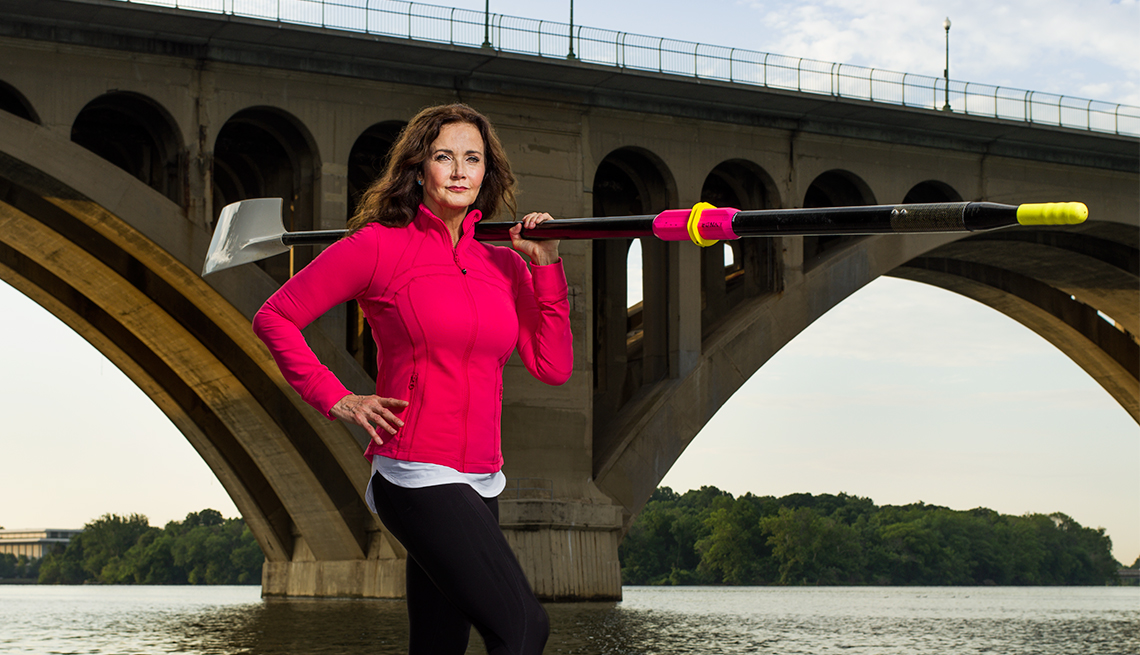Staying Fit
Lynda Carter wears her celebrity lightly, laughing with fellow rowers about the curlers still in her hair when she arrives for a 6 a.m. photo shoot at the historic Potomac Boat Club in northwest Washington, D.C.
Her role as a mighty Amazon in the original Wonder Woman TV series (1975-79) required Carter to do a good deal of running and physical stunts for the camera. Now, as daybreak lights the cathedral arches of Key Bridge just downstream, the fit 65-year-old carries a one-woman racing shell across the wood-plank dock and grapples it into position on the water. Carter is about to undertake a workout she's been trying to perfect since she fell in love with sculling (two oars) eight years ago.


AARP Membership— $12 for your first year when you sign up for Automatic Renewal
Get instant access to members-only products and hundreds of discounts, a free second membership, and a subscription to AARP the Magazine.
"A girlfriend of mine suggested I would like it," Carter recalls, "but I was skeptical at first. Then one day I happened to cycle past a couple of boat clubs and thought, 'You know, I'm going to see if I can learn to scull.' So I started taking lessons — and loved it from the start. Sculling is easy to learn, but tough to master. Anyone can get in a boat and paddle around, but to get anywhere requires extreme balance."
Here, Carter expands on the notion of finding balance — on the water, on stage, in life overall:
Why rowing?
It's a sport convenient to anyone who lives in the Washington, D.C., area, because you've got the river right there. You can scull anyplace that's got a smooth enough waterway. It's a wonderful sport: You get amazing exercise, and it's always quiet and beautiful.
Were you trepidatious about learning it?
Why would I be? It does take a certain skill level, because the boat is very tippy. You've got these unwieldy, 15-foot-span oars, and you're throwing them around in an itty-bitty, long, skinny boat. The worst thing that can happen is you tip over and have to climb back in.
Has that ever happened to you?
Many times. When you catch an oar in the water, it's like catching a ski tip in the snow; over you go.
Is daily ritual part of the sport's appeal?


































































